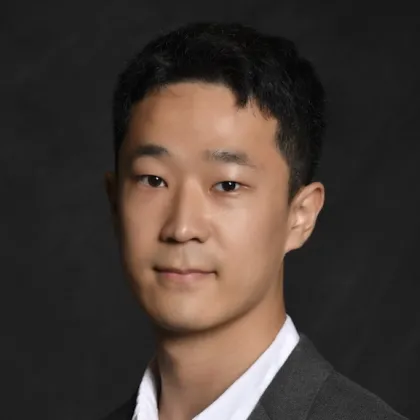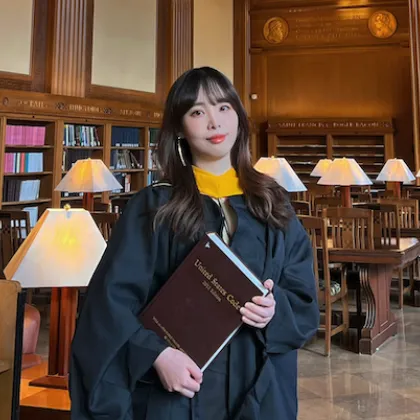Generative AI at Simon: Training human intelligence to leverage artificial intelligence

Generative AI at Simon: Training human intelligence to leverage artificial intelligence
August 3, 2023 | By Bret Ellington
The release of ChatGPT by Open AI has been met with excitement, apprehension, and perhaps most of all—questions. Questions have ranged from the personal, such as “How will this affect my job?” to the existential, as in “How will this impact the future of humankind?”
Some in the academic community immediately saw the new challenges this technology will present—chief among them being new avenues to academic dishonesty. However, other institutions have embraced generative AI, seeing its potential to transform education, both in how their students learn and in how their faculty teach.
The fact is generative AI is not going anywhere anytime soon, and it’s evolving at a rapid pace. For this reason, at Simon, we have chosen to embrace this technology. We have turned our focus to preparing our graduates to leverage generative AI by integrating it into the curricula in deep and creative ways—to help them gain a competitive edge in their careers.
At Simon, we have a long-standing history of adopting new practices and technologies to prepare our graduates for the business landscape of the future. For example, Simon was the first business school in the US to introduce a STEM (science, technology, engineering, and math)-designated option for each of its full-time MBA specializations. This designation helped graduates stand out in the job market in many ways, just as weaving generative AI into our curriculum will give graduates a competitive edge to lead in the global contemporary workplace.
As generative AI continues to reshape the job market, candidates equipped with a working knowledge of this technology will be well-positioned to adapt and thrive. We know that generative AI will change the future of business, so it must be integrated into business education to prepare future leaders to navigate the complexities and immense possibilities generative AI will present.
How will generative AI be used at Simon?
This fall, Simon Business School implemented a new generative AI use policy, outlining when and how students can utilize this technology in both student work and exams. The policy also gives details on how students should cite their use of tools like ChatGPT.
Today, as we just begin to comprehend the multitude of applications this technology will have in the future, Simon finds itself in a uniquely favorable position. It’s innovative, nimble faculty are devoting time and resources to developing a comprehensive business education meant for the generative AI future. Such developments include not only rethinking courses, but the curricula, and maintaining the nimbleness to keep curricula in step as these rapidly improving technologies change and evolve. With the assistance of an AI Faculty Task Force and the Instructional Technology and Innovation Team, instructors will guide students through best practices, pitfalls, and frameworks for how to leverage what some are calling the biggest innovation in modern times. Students are engaged in understanding the impact of generative AI from day one with a case during orientation, workshops in the first term, and integrated curricular and co-curricular applications throughout the year.
Harnessing the power of generative AI.
Mitch Lovett is the Benjamin Forman Professor of Marketing and the senior associate dean of education and innovation at Simon Business School. He has spent over 15 years focusing his research on quantitative marketing, a field that has already fused with AI and AI-related models. He has a unique perspective on generative AI and how it will affect business education.
In this recent Simon Quicktakes webinar series, Dean Lovett dives deeper into the potential impact generative AI may have on higher business education and gives us an idea of what steps Simon will be taking to empower future leaders with the skills to harness its power.

Bret Ellington is a senior copywriter at Simon Business School.
To view other blogs in this series visit the Talent Connect Main Page











